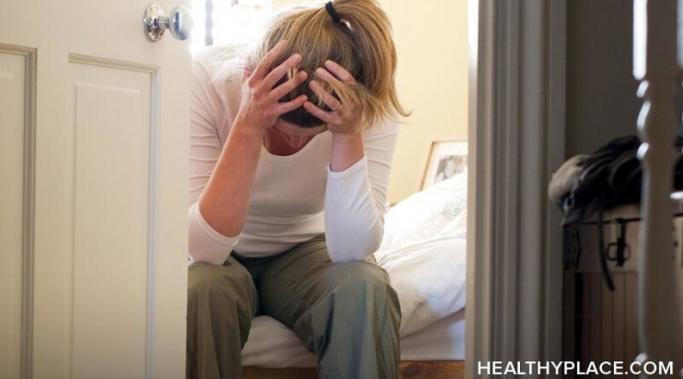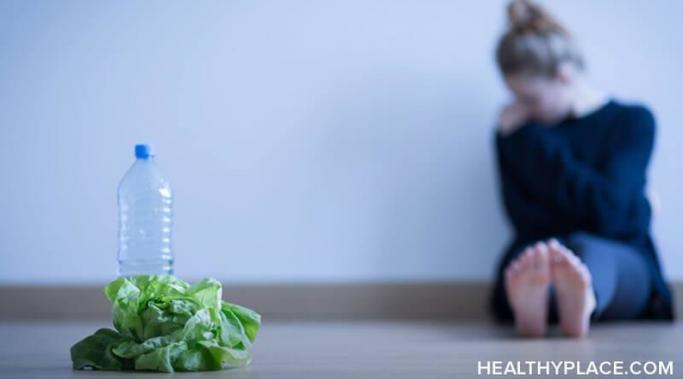On Tuesday, I started studies for my Master's degree. (In expressive arts therapy, if you were wondering.) And around the country, schools and universities are returning to session and one of the most common "get-to-know-you" questions is "What did you do this summer?" If you were lucky enough to go to an eating disorder treatment center during the summer months, or during a school break, you might be able to make something up. But what if you're in a career and just had to take off three or six months for eating disorder treatment? How do you explain that?
Binge Eating Treatment
Even considering to seek inpatient treatment for your eating disorder is a big step. On the whole, we don't like to admit how bad things have gotten. Considering inpatient or residential treatment means that you have to recognize that your behaviors, your thoughts, your eating disorder is out of control. It's nearly inconceivable at some points to think this - after all, isn't your eating disorder what gives you control? Why would we seek inpatient treatment for the eating disorder?
One of the things any good therapist or dietitian will ask you when you seek treatment for your eating disorder is, “What goals do you have for our time together?”
I’ve done the treatment rodeo enough times to know that this question is coming, but I still stumble over words and fumble trying to find the “right” answer to this age-old question. To be clear, there is no “right” answer – only you can decide what things you are ready to tackle in your recovery. However, when you determine what those things are, there is a way to make effective goals that will further your recovery.
In February 2010, I entered inpatient treatment for anorexia nervosa, anxiety, and depression. I felt like a complete failure that this was my sixth inpatient admission, and I vowed that it would be my last admission.
On Monday, I will once again admit myself to the hospital for six days of psychiatric treatment. It was a difficult decision to make, and one that many of us struggling with eating disorders and co-morbid illnesses often face.
The first step in recovering from any eating disorder is accepting that you do have an illness that deserves and needs treatment.
The next step is finding the appropriate people to guide you in recovering from your eating disorder. That can be very difficult. However, there are different types of help out there and I would encourage you to never give up trying to find what works for you.
For weeks, I have struggled to do anything beyond the bare minimum. Eating disorders are in part coping mechanisms, and can be deceptively helpful in masking painful emotions. That can make recovery from an eating disorder very difficult, because most people struggle with painful emotions and would rather push these feelings aside than face them.
I always like to think I am different - but I am not - and that I can push through the emotions the recovery stirs up. Each time I begin the recovery process with a fierce determination to beat anorexia nervosa for the last time. I feel strong and sure as I start to eat regular meals and snacks and stop all related eating disorder behaviors, and I know in my heart that I will travel the road to full recovery without roadblocks or detours.
But emotions can only be suppressed for so long, and I inevitably become anxious and depressed as I begin to eat like a normal person. Determination fades and strength wavers as all the emotions that I couldn't feel while in the middle of my eating disorder come roaring back, leaving me cowering in the corner.
I recently learned that several friends of mine also are struggling with their eating disorders, and that it hurts even though I also have an eating disorder.
You cannot always tell a person has an eating disorder simply by looking at him or her.
I stressed that because one of the most common and enduring myths about eating disorders is that the person must be young, female, and extremely emaciated to have an eating disorder.
That is simply not true.
Eating disorders and loneliness. It is not something we speak or write about often. It is painful to think about being lonely. But I believe people with eating disorders are often very lonely. It is the nature of these illnesses. But it doesn't have to be this way. I would like to shine some light into these dark corners of loneliness, and perhaps help other people with eating disorders feel less alone.
PHP IOP NG Tube AN TPN IP AMA . . .
The first time I was hospitalized for anorexia nervosa was in June 2008. I left after 24 hours — AMA. The second time I was hospitalized for treatment my doctor informed me I would need a TPN.
I was totally clueless about the acronyms and terms. It can feel like you are swimming in a vast sea of alphabet soup when you first enter the world of eating disorders treatment.








